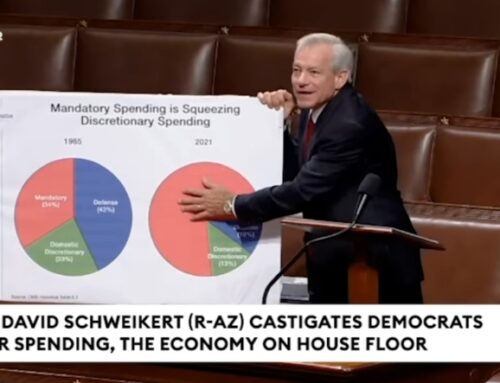…will you trust the word of the U.S. Joint Forces Command?
File available for download from this site.
- Changing conditions in the global economy could likewise have important implications for global security also, including a decreased ability of the United States to allocate resources for defense purposes, less purchasing power for available dollars, and shifting power relationships around the world in ways unfavorable to global stability.
- Domestically, the future of the U.S. financial picture in both the short and long term is one of chronic budget deficits and compounding debt. The federal deficit for the 2009 fiscal year was about $1.42 trillion or one tenth of U.S. economic production in that year. For the first two months of the 2010 fiscal year, the cumulative deficit was already higher than any previous total yearly deficit run by the federal government and even the most optimistic economic projections suggest that the U.S. will add $9 trillion to the debt over the next decade, outstripping even the most optimistic predictions for economic growth upon which the federal government relies for increased tax revenue.
- Rising debt and deficit financing of government operations will require ever-larger portions of government outlays for interest payments to service the debt. Indeed, if current trends continue, the U.S. will be transferring approximately seven percent of its total economic output abroad simply to service its foreign debt.18 As the graph above illustrates, interest payments are projected to grow dramatically, further exacerbated by recent efforts to stabilize and stimulate the economy, far outstripping the current tax base shown by the black line. Interest payments, when combined with the growth of Social Security and health care, will crowd out spending for everything else the government does, including National Defense.
- The foregoing issues of trade imbalance and government debt have historic precedents that bode ill for future force planners. Habsburg Spain defaulted on its debt some 14 times in 150 years and was staggered by high inflation until its overseas empire collapsed. Bourbon France became so beset by debt due to its many wars and extravagances that by 1788 the contributing social stresses resulted in its overthrow by revolution. Interest ate up 44% of the British Government budget during the interwar years 1919-1939, inhibiting its ability to rearm against a resurgent Germany. Unless current trends are reversed, the U.S. will face similar challenges, anticipating an ever-growing percentage of the U.S. government budget going to pay interest on the money borrowed to finance our deficit spending.





